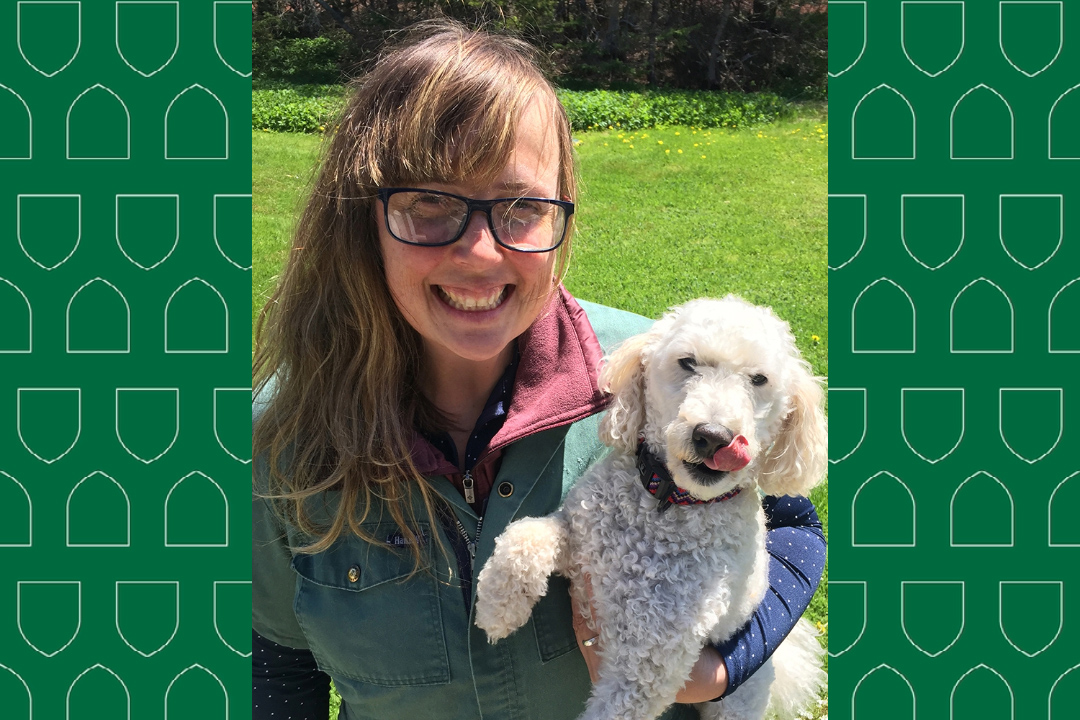
Butler’s love of horses drives veterinary career
Long before she became a veterinarian, Dr. Amanda Butler was a big fan of horses.
By Cat Zens“There was never a second when I didn’t think I was going to work with horses,” says Butler, a lecturer in equine field service and large animal medicine at the Western College of Veterinary Medicine (WCVM).
“[For me], it was always horses, horses, horses.”
After graduating from her local high school in Victoria, B.C., Butler spent more than a decade working on various farms where she rode horses, cleaned pens and took care of the animals while their owners were away.
She enjoyed all of these experiences, but since a career in equine veterinary medicine was always part of Butler’s career plans, she moved across Canada to the East Coast where she began working toward her goal. She completed her Bachelor of Science degree in environmental biology at the University of Prince Edward Island (UPEI) and then earned her Doctor of Veterinary Medicine degree at UPEI’s Atlantic Veterinary College in 2017.
Butler spent one year interning at an equine hospital in Montana before returning to UPEI to work on a large animal internal medicine residency and Master of Veterinary Science (MVSc) degree — a career aspiration that she developed during veterinary school. Once Butler realized that graduate studies included discovering how things work, she was hooked.
“The second I heard about being a large animal internal medicine specialist and what that means, I thought, ‘Oh my God. That’s exactly what I want to do,’” says Butler, who is particularly interested in equine parasites and how they spread among horses.
For her master’s program, Butler’s research project focused on parasites in P.E.I. and the resistance of equine parasites to deworming medications (anthelmintic resistance). While equine parasites are one of Butler’s special interests, she also enjoys anything related to internal medicine in horses — especially treating equine illnesses that cause diarrhea.
After earning her master’s degree and board certification with the American College of Veterinary Internal Medicine (large animal) in 2021, Butler worked for eight months at a private equine practice in Alberta. Her next move was to Saskatoon in 2022 to cover a one-year sabbatical leave for one of the WCVM’s large animal faculty members.
During her time at the college, Butler discovered her passion for teaching and working in an academic setting. She aims to make her lectures especially entertaining for students by incorporating jokes and interactive content in her teaching. Butler uses her own clinical experiences in her coursework as real-world examples, and since it’s only been a few years since she was in veterinary school, Butler can relate to her students’ perspectives.
“Work doesn’t have to be extremely stressful even though you work in a stressful environment. It’s really important to me to get the students to relax and breathe,” says Butler, acknowledging the hardships of working in the profession amid nationwide shortages of veterinarians.
“Especially now, I find with students’ stress and health and well-being, it’s good for them to have a break and realize that we don’t have to be these rigid veterinarians — that there is fun to it.”
During her own down time, Butler enjoys gardening in her backyard and spending time with her dog Finn and her new kitten Ghetz.
While Butler is still working to enrich and improve her teaching skills, she’s proud of what she achieved so far.
“It makes me feel good knowing that the students are learning and that they’re getting taught in a way that’s fun for them.”
Cat Zens of North Battleford, Sask., is a fourth-year student in the University of Regina’s School of Journalism. She is working as a research communications intern at the Western College of Veterinary Medicine (WCVM) for summer 2023.
